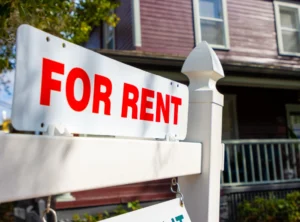Governments aim to regulate the rental housing market

Government Interference on Landlords Can Be Profound
The impact of government interference on landlords can be profound as governments aim to regulate the rental housing market. These interventions often spark debates about fairness, economic impact, and the rights of property owners.
If you’ve been a housing provider for any period of time, you’ve likely been rattled by some restriction imposed by a governmental body.
And usually that frustration is followed up by the statement uttered under your breath (or maybe at the top of your lungs), “But it’s my property!”
Government interference with landlords is often a contentious issue, drawing both criticism and support from various parties. As governments aim to regulate the rental-housing market, their interventions often spark debates about fairness, economic impact, and the rights of property owners.
Rent control
A rapidly expanding area where governments extend their control over your rights can be seen in communities where rent-control policies are being introduced and enforced.
These regulations typically limit how much landlords can increase rents annually, aiming to protect tenants from steep hikes that could lead to housing instability.
Proponents argue that rent control ensures affordable housing, prevents the wealthy from overtaking, and stabilizes communities.
However, critics contend that it discourages new construction, decreases housing quality, reduces tenant mobility, and increases administrative costs. Simply put, it helps people who are in trouble right now but it has the potential to harm everyone else involved in the business relationship.
Need Legal Help?
Chat with a real estate lawyer near you. It’s only $5 for a 1-week trial. Ask unlimited questions.
Eviction policies
Another area where the government can interfere is in the creation of eviction policies.
Legislatures often set strict guidelines on when and how landlords can evict tenants, aiming to prevent unfair evictions and homelessness.
Depending on where you have investments, these regulations vary widely, with some jurisdictions requiring just cause for eviction, such as non-payment of rent or lease violations, while others impose longer notice periods. If you have properties in multiple markets, make sure you are familiar with the particular nuances of each area and adhere to those policies with accuracy.
Property taxes and government subsidies
Taxation is also a significant area of government involvement.
Property taxes, in particular, can substantially affect landlords’ profitability.
Governments use property taxes to fund public services, and rates can vary widely depending on local budgets and assessments.
We have seen some areas in the country penalize property owners with significantly higher tax rates for rental properties. Deductions and incentives for landlords may exist to mitigate these costs, but navigating tax codes adds complexity and cost to property management.
Government subsidies and incentives also play a role in landlord-tenant dynamics. Programs that subsidize low-income tenants or incentivize landlords through tax breaks when they provide affordable housing aim to bridge the gap between market forces and social needs.
The challenge often lies in the bureaucratic administration of these programs that generate outcomes that vary in effectiveness.
The legal side
Lastly, the legal frameworks that affect landlord-tenant relationships are another critical area of government interference.
Lease agreements, security deposits, tenant-screening limitations and repair responsibilities are often regulated to protect both parties’ rights.
These laws seek to balance the power dynamic between landlords and tenants, ensuring fair treatment and resolving disputes through judicial processes; although it often feels like landlords are always made out to be the villains in the media.
The impact of government interference on landlords can be profound.
Well-intended regulations aim to create stable housing markets and protect vulnerable tenants, but they can also impose financial burdens and limits on property rights for the beleaguered landlord.
Compliance costs, reduced flexibility in managing investments, and potential for legal disputes create a complex landscape that landlords have to navigate with extreme care.
So next time you want to shout to the rooftops, “But it’s my property,” realize there is more at play here than just you trying to effectively manage your investment.
Source: Rental Housing Journal













 Accessibility
Accessibility